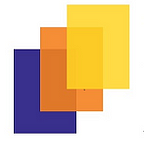Faith In/And Democracy Grantee Profile: Wisconsin Interfaith Voter Engagement Campaign
Faith In/And Democracy is a pilot funding and learning initiative led by PACE to explore the ways faith and faith communities can support democracy and civic life. PACE caught up with all five of the cohort participants to get a status update on their projects thus far, and we are releasing a series of interviews over the next month to highlight their leadership and share more about their early learnings.
Two groups, Wisconsin Council of Churches (WCC) and Wisconsin Faith Voices for Justice (WFVJ), are partnering together to pilot a campaign to engage the Wisconsin interfaith community in the democratic process through voter engagement, registration, and turnout efforts. Here is more from our conversation:
Q: Tell us more about your project. What are the tangible action impacts you are pursuing?
A: The Wisconsin Interfaith Voter Engagement Campaign is a pilot that aims to use the expertise, credibility, and consistency in faith-based public engagement to offer local congregations an on-ramp to the political process. We are focusing on non-partisan voter education, registration, and turnout efforts. When we are successful, we hope to see:
- Congregations in our target regions engaging in interfaith dialogue;
- Congregations partnering with faith communities other than their own on projects that will have a positive impact on minority and underserved populations within their geographic region;
- Greater participation in the electoral process by communities of faith.
It is our belief that engaging in this work will build increased understanding and stronger ties among different faith communities, increase engagement in the electoral process, and result in a greater understanding by faith communities of the influential role they can play in the public square.
Q: Why did you take this on and what do you hope it achieves?
A: One of the major questions we are trying to answer is how to educate people of faith so that they can be inspired and compelled by the teachings of their faith to get involved in the political process, without imposing their beliefs on the electorate at large. People often find it difficult or uncomfortable to talk about how they relate their faith traditions to political values. Additional obstacles include confusion about separation of church and state and what forms of election-related activity are permitted to religious and other non-profit organizations and fear of generating conflict and controversy within congregations. This project seeks to address this discomfort through intra- and inter-faith dialogue and learning; through training on the deep roots of faith traditions in advocating; and through engagement with people most directly affected by public policies that do them harm.
Q: What are you learning so far?
A: In designing this pilot, we anticipated learning two things: (1) how to best reach out to geographic areas around the state and involve them in our work, especially in how to bridge the rural-urban divide and the faith divide, and (2) how to more effectively equip and inspire local congregations and interfaith associations to make public engagement (before and between elections) part of their regular activities.
We are encouraged by how, even at this early stage, we are beginning to broaden our contacts around the state. The enthusiastic responses from a wide variety of groups and individuals we have gotten so far have shown how much of an appetite there is for increasing civic engagement and involving the faith community.
Q: What success have you seen so far in your project? Any stories to share?
A: Phase 1 of our pilot (September 2019 — January 2020) is outreach to promote project engagement. We have been very busy reaching out to targeted congregations, communities, and organizations to build partnerships around the state and among denominations. We hired two interns to move this work ahead, and they have helped us connect with five state-wide organizations and many organizations in specific cities and communities. We are also connecting with state-wide campus civic engagement organizations and developing the agenda for our interfaith day of dialogue.
The two campus groups are all very excited about the project, and we are currently writing Memoranda of Understanding for these groups. We also have the support of a statewide
interfaith group and another group that will help us get information on low-voter turnout areas to target for the future phases of our project.
Through WFVJ’s Executive Director Rabbi Bonnie Margulis’ connections to the Reform Movement of Judaism, our project has come to the attention of the national advocacy arm of Reform Judaism — the Religious Action Center of Reform Judaism (RAC). The RAC is urging Reform synagogues around the country to engage in voter registration activities and is excited to work with us to make both of our projects a success. Through this connection, Reform synagogues in Illinois have reached out to us to offer their help in organizing in Wisconsin. Leaders in the member denominations of the Wisconsin Council of Churches have also expressed strong support for this project as an important way to engage their congregations in the public square.
Q: What are your biggest challenges as you look ahead?
A: Among the challenges we face is reaching out across Wisconsin’s rural and urban areas, cities large and small, some with more diverse populations than others. For this project, we will build on ties we already have in target areas, but it will still be a challenge to organize across geographic distance. We plan to make use of technology and local connections, recruiting local organizers and making use of student interns from University of Wisconsin campuses to bridge the geographic divide. Another critical challenge is overcoming the reluctance of clergy and some laity to engage the political process for fear of crossing a partisan boundary or causing conflict within the congregation.
